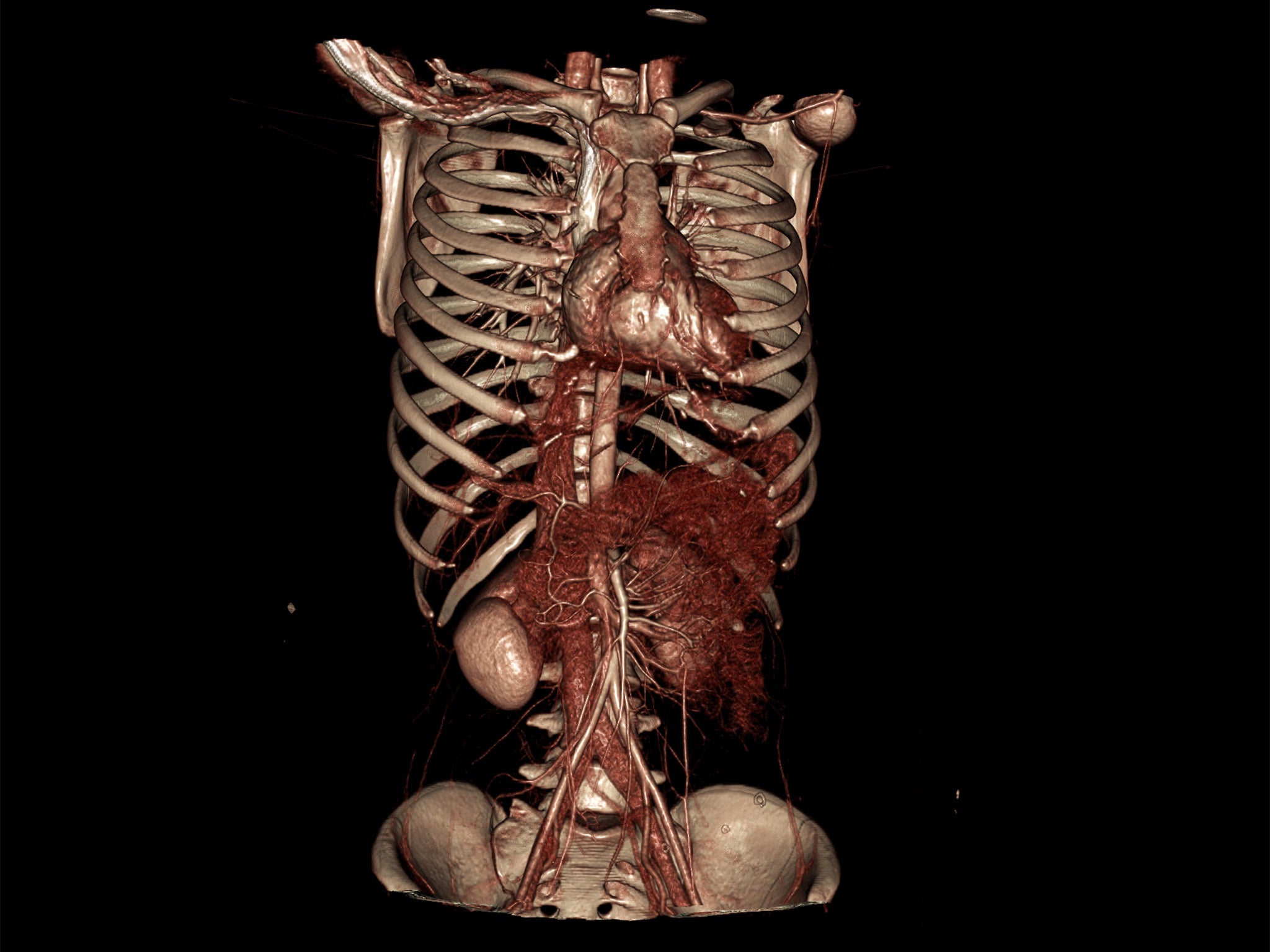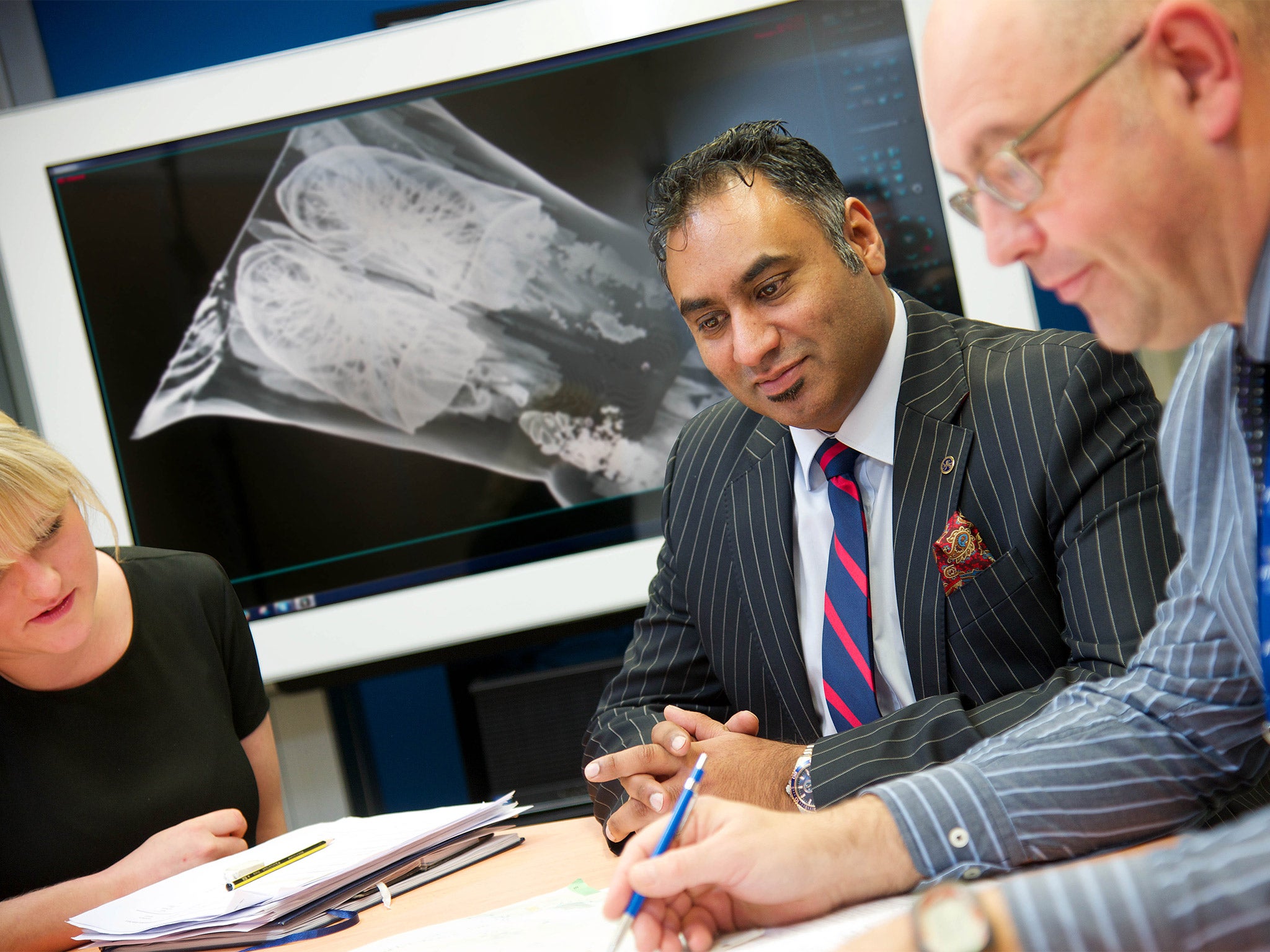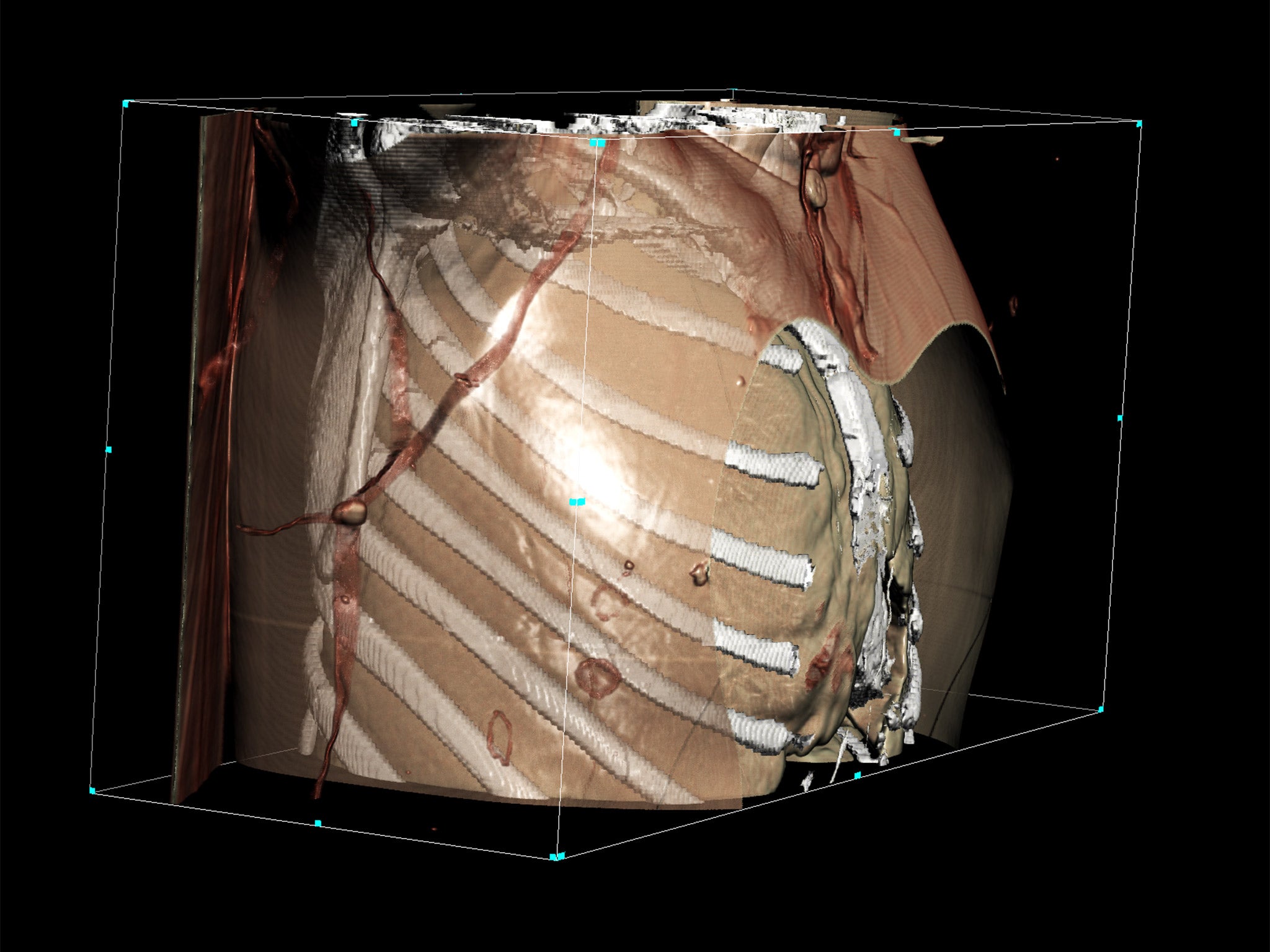Scanner replaces scalpel in post-mortem revolution
A new firm is offering families digital autopsies rather than invasive procedures. Charlie Cooper reports on a move that could help grieving relatives

In a nondescript grey box of a building on an industrial estate in Sheffield, a medical revolution is in progress.
“Things have been done the same way for hundreds of years. We want to change it. We think it could change the world,” says Ash Govind, the man in charge.
Mr Govind is the vice- president of a company called iGene. A year ago, it opened the UK’s first centre for digital autopsy – post-mortems carried out with a scanner, not a scalpel.
His motivation is simple: given a choice, he believes, nearly everyone with a family member requiring a post-mortem would opt for a scan over an invasive procedure that can, in some cases, leave a person’s remains horribly scarred.
The goal, he says, is to make physical post-mortems – 94,000 of which took place in England and Wales last year – “the old-fashioned way of doing things”.
“I think this has to be available to everyone in this country and if it isn’t then the families aren’t getting a choice and we’re not caring for them as we should do,” says Kovind.
So far only a few hundred people have taken up the offer – but a major milestone was reached in November when Sandwell Council on the outskirts of Birmingham became the first local authority to offer the service to their citizens free of charge. Other areas offer the service, including Leeds, Bradford and Sheffield, but individuals must pay the £600 charge themselves.

iGene – an offshoot of the Malaysian tech company Infovalley – now has three digital autopsy centres in England at Sheffield, Bradford and Sandwell. Each is equipped with CT scanners like those used to scan patients in hospitals. It is planning to open up in London, Wales and other areas in the near future.
A digital autopsy works by creating a computerised 3D image of the body. Because there are no restrictions around radiation when scanning dead bodies, iGene can take longer over the scans and produce extraordinarily detailed anatomical images.
The company’s computer system can then remove the various layers of the body – first the skin, then fat, muscle and bone – using a “digital scalpel” to give a radiologist an insight into what might have caused the death.
The implications of the company’s work could be wide-ranging: nearly one in five deaths in England and Wales in 2013 required a post-mortem. They are ordered, not only when someone has died in custody, or in suspicious circumstances, but whenever the cause of death is officially unknown.
There have been repeated calls for post-mortem rates to come down. Scotland performs fewer, as do many countries, and there is a growing recognition that an autopsy can be traumatic for bereaved relatives, particularly when religious beliefs place particular emphasis on the sanctity of the body in death.
Mohammed Siddique, a retired NHS health education officer from Bradford, lost his father in October. The cause of death was unknown, but as a Muslim – and as a son – he was troubled by the prospect of a post-mortem.
He heard from a Jewish friend about the possibility of a digital autopsy and was able to request one, which iGene carried out, identifying the cause of death – a ruptured thoracic valve – to the satisfaction of the coroner.
“It was something that gave me comfort, to see my father go undisturbed in going to the next life,” Mr Siddique, 59, said. “It should be available for anyone, religious of non-religious.”
Indeed, iGene says most people who have come to it so far have requested the scan not for religious reasons, but simply for peace of mind.

CT scanners are already sometimes used to aid post-mortems, but the focus on them as a mainstream alternative breaks new ground. iGene is ambitious and wants digital autopsies to become the first option considered when a coroner investigates a death.
However, experts say – and the company openly admits – that it is not appropriate in all cases.
“Pathologists think this is an exciting development,” said Dr Mike Osborn, non-forensic autopsy advisor, and fellow of the Royal College of Pathologists. “However, these autopsies are very good at defining certain types of death, and very bad at identifying others. You have to be careful about your case selection.”
Deaths from poisonings, such as sepsis cases, or blood clots, for example, cannot be detected by the scan.
“Within the profession there may be a view that if it’s not broken why fix it,” said Mr Kovind. “But the human element has never really been brought in. How does the family feel? Is there a humanitarian benefit to doing this? We’re aiming for nationwide coverage.”
The biggest stumbling block is likely to be the cost. Currently each scan costs £600 and councils, if they were to follow Sandwell’s example, would be under a significant financial burden if digital autopsies became the norm.
However, iGene says the cost will come down the more scans they are asked to perform.
Mr Siddique, for one, hopes that councils, or the NHS, will consider offering the service more widely.
“You pay the pathologist to do the post-mortem anyway. That money could be transferred to the scanning company,” he said. “People who are unable afford the scan, if they really want it they should have the opportunity… you feel it should be available. It’s a compassionate choice that doesn’t violate the sanctity of the body.”
Join our commenting forum
Join thought-provoking conversations, follow other Independent readers and see their replies
Comments